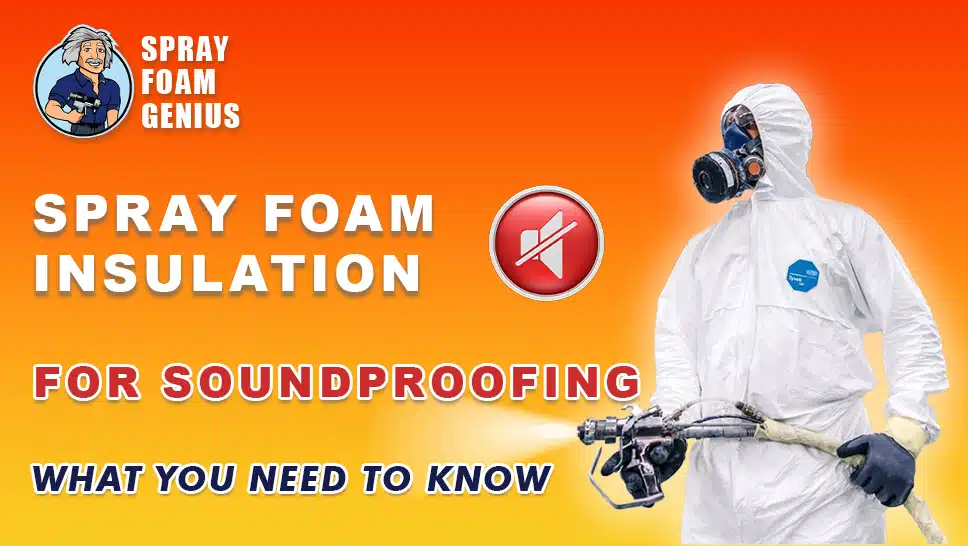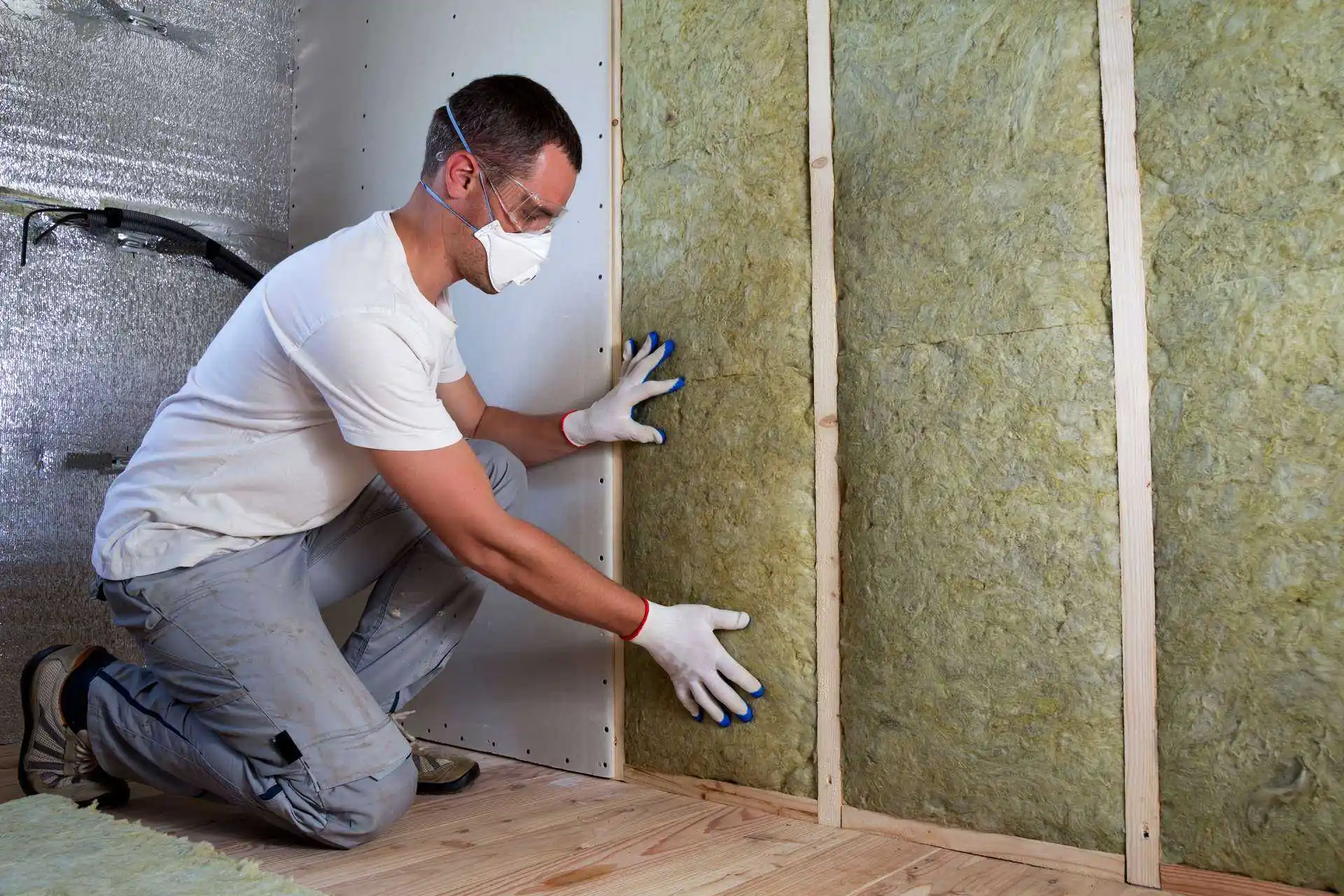
Why Soundproofing Matters for Insulation Contractors
For insulation contractors, spray foam insulation is a valuable solution that enhances both residential and commercial properties by providing superior soundproofing. Whether homeowners want quieter living spaces or businesses need to reduce noise pollution, the demand for effective soundproofing solutions is growing. Spray foam insulation not only helps block unwanted noise but also improves energy efficiency, making it a highly desirable choice for property owners.
While many insulation materials offer some level of noise reduction, one solution stands out for its superior performance—high-quality insulation designed to block and absorb sound effectively. Understanding how it works, the benefits it offers, and how to position this service for customers can give your business a competitive edge.
How Insulation Works for Soundproofing
Understanding Sound Transmission
To grasp how insulation helps with soundproofing, it’s essential to understand sound transmission. Sound travels through air and solid materials in two primary ways:
- Airborne Noise – This includes sounds like voices, music, and television noise. Airborne noise travels through walls, floors, and ceilings, often causing disturbances in adjoining rooms.
- Impact Noise – This includes footsteps, dropped objects, and vibrations from machinery. It travels through solid structures like floors and walls, making it harder to control.
How Insulation Reduces Noise
Properly installed insulation helps block both airborne and impact noise by:
- Absorbing sound waves before they pass through walls or ceilings.
- Reducing echo and reverberation by limiting sound reflection within a space.
- Minimizing structural vibrations that carry sound through buildings.
Because of these properties, insulation is often used in home theaters, offices, apartment buildings, and commercial spaces to create a quieter, more comfortable environment.
Comparing Insulation Types for Soundproofing
When considering the best insulation for soundproofing, different materials offer varying levels of effectiveness.
1. Fiberglass Batt Insulation
- Cost-effective and widely used.
- Provides moderate noise reduction.
- Works best when combined with additional soundproofing methods.
2. Cellulose Insulation
- Made from recycled paper treated for fire resistance.
- Offers decent soundproofing but lacks structural rigidity.
3. Rigid Foam Insulation
- More effective at thermal insulation than soundproofing.
- Not ideal for reducing airborne noise.
4. Specialized Acoustic Panels
- Designed specifically for soundproofing but can be costly.
- Often used in recording studios or high-end home theaters.
5. High-Performance Insulation for Soundproofing
- Provides superior noise reduction.
- Expands to fill gaps and seal spaces where sound can travel.
- Effectively blocks both airborne and impact noise.
Among these options, high-performance insulation stands out as the most effective solution for comprehensive soundproofing.
Key Benefits of Insulation for Soundproofing

1. Enhanced Privacy and Comfort
A well-insulated home or office significantly reduces unwanted noise, improving comfort and privacy.
2. Increased Property Value
Properties with effective soundproofing are more attractive to buyers and tenants, making this a strong selling point.
3. Improved Energy Efficiency
In addition to soundproofing, insulation enhances thermal performance, reducing heating and cooling costs.
4. Compliance with Noise Regulations
Many cities have strict noise regulations for commercial and residential buildings. Proper soundproofing helps meet these requirements.
5. Versatility for Multiple Applications
Insulation contractors can offer soundproofing solutions for homes, offices, music studios, hospitals, schools, and industrial buildings, expanding their market potential.
Best Practices for Installing Insulation for Soundproofing
To maximize noise reduction, proper installation is crucial. Here’s what contractors should consider:
1. Sealing Air Gaps and Cracks
- Even small gaps allow sound to travel.
- Use acoustic sealants around outlets, light fixtures, and baseboards.
2. Layering for Maximum Effectiveness
- A combination of insulation and drywall (double layers or specialty acoustic drywall) significantly improves results.
- Consider resilient channels to create an air gap that disrupts sound transmission.
3. Ensuring Proper Density
- Denser materials absorb more sound.
- Avoid compressing insulation, as this can reduce its effectiveness.
4. Targeting Key Noise Problem Areas
- Walls, ceilings, and floors all require attention.
- Focus on shared walls in multi-family housing and ceiling insulation in multi-story buildings.
5. Educating Customers on Expectations
- While insulation greatly reduces noise, complete sound elimination may require additional measures like carpets, curtains, or furniture placement.
Marketing Soundproofing Services to Homeowners and Businesses
Adding soundproofing to your service offerings can attract new customers and set your business apart. Here’s how to position your expertise effectively:
1. Educate Customers on the Benefits
Use your website, blog, and marketing materials to explain the advantages of soundproofing and how it improves home and work environments.
2. Target High-Demand Markets
Focus on homeowners, apartment complexes, office buildings, and entertainment spaces that need noise reduction.
3. Use Case Studies and Testimonials
Showcasing before-and-after results from previous soundproofing projects builds credibility and trust with potential clients.
4. Optimize for Local SEO
- List soundproofing services on your Google Business Profile.
- Use location-based keywords to attract customers in your area.
- Publish content-rich blog posts about real-world applications of soundproofing.
5. Offer Free Consultations
Providing free assessments encourages homeowners and businesses to explore soundproofing solutions without upfront commitment.
Frequently Asked Questions (FAQs)
1. Does insulation completely eliminate noise?
No insulation can completely eliminate noise, but high-performance materials significantly reduce both airborne and impact sound, making spaces much quieter.
2. How long does it take to install insulation for soundproofing?
Installation time depends on the size of the project. Most residential applications take one to three days, while larger commercial projects may take longer.
3. Can soundproofing insulation improve energy efficiency?
Yes, in addition to noise reduction, insulation improves energy efficiency by sealing gaps that allow heat and cold to escape, leading to lower utility bills.
4. Is soundproofing only beneficial for homes?
No, soundproofing is valuable for offices, apartment buildings, hospitals, schools, entertainment venues, and industrial spaces where noise control is important.
5. How much does soundproofing insulation cost?
Costs vary depending on the material, project size, and complexity. Contractors should provide custom quotes based on the specific needs of each customer.
Get More Soundproofing Projects with Expert Digital Marketing
If you want to grow your insulation business by offering high-performance soundproofing solutions, you need the right marketing strategy. That’s where we come in.
At Spray Foam Genius Marketing, we specialize in:
✅ SEO & Local Search Optimization – Helping insulation contractors rank higher on Google.
✅ Website Design for Insulation Contractors – Creating conversion-focused websites that drive leads.
✅ Google Business Profile Optimization – Boosting visibility for local searches.
✅ Lead Generation & Google Ads – Getting more customers for your business.
✅ Reputation Management – Building trust through positive online reviews.
We work exclusively with insulation contractors in the USA and Canada, ensuring that every strategy is tailored to your industry.
📞 Call us at 877-840-FOAM (USA) or 844-741-FOAM (Canada)
🌐 Visit our website: sprayfoamgeniusmarketing.com
📧 Email us at [email protected]
Let’s take your insulation business to the next level—start getting more soundproofing projects today!
- 5 Google My Business Hacks to Double Your Leads for Spray Foam Insulation Contractors - January 14, 2025
- Why Spray Foam Contractors Cannot Ignore Reputation Management in 2025 - January 13, 2025
- Local SEO Secrets Every Spray Foam Contractor Must Know to Win in 2025 - January 13, 2025

